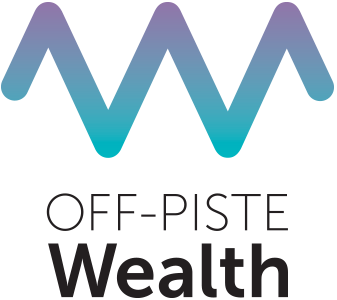Achieving Financial Independence for Professional athletes.
In the world of sports, achieving financial independence is a crucial goal for professional athletes.

Professional sports provide a unique opportunity for athletes to excel in their chosen field and achieve financial success at a young age.
However, it is crucial for these sportsmen and women to understand how to manage their finances effectively to attain financial independence in their 20s and 30s.
This article explores strategies for achieving financial independence, including cash flow modelling, early retirement considerations, and smart investment choices to generate a regular passive income stream in the future.
Understanding Financial Independence
Financial independence refers to the ability to cover one’s expenses without the need for active employment or dependence on others for financial support.
It provides individuals with the freedom to pursue their passions, explore new opportunities, and enjoy a fulfilling life. Achieving financial independence in their 20s and 30s can be a remarkable feat for professional athletes, thanks to their potential for significant earnings during their prime years.
Building a Solid Financial Foundation

To achieve financial independence, it is essential for professional athletes to establish a strong financial foundation. This involves developing a comprehensive financial plan that includes budgeting, saving, and investing wisely.
Athletes should work with financial advisors who specialise in sports finance to ensure their financial goals align with their career trajectory and future aspirations. It is crucial to start financial planning early in their careers to maximize the benefits of compound interest and long-term investment strategies.
Embrace Financial Independence Beyond Early Retirement

While early retirement is an attractive goal, financial independence extends beyond simply retiring early. It encompasses the freedom to have choices and pursue activities that align with personal interests and passions, even if one continues to work in their chosen profession.
The Financial Independence and Retire Early (FIRE) movement, popularized by individuals like Peter Adeney and Morten Strange, emphasizes financial independence as a means to unlock opportunities rather than focusing solely on early retirement.
Utilise Cash Flow Modelling
Cash flow modelling is a valuable tool for athletes to understand their current financial situation and plan for the future. By tracking income, expenses, and investments, athletes can gain insights into their financial health and make informed decisions.
Cash flow modelling helps identify surplus income, enables effective budgeting, and highlights areas for potential savings and investment opportunities.
While retiring early may not be desirable for everyone, it is important for professional athletes to explore the possibility. Early retirement provides the freedom to pursue alternative careers, engage in philanthropic endeavours, or simply enjoy life without financial stress. However, athletes should carefully evaluate their personal circumstances, interests, and long-term goals before making such a decision.
Diversify Investments for Passive Income
To secure a regular passive income stream for the future, athletes should consider diversifying their investment portfolio. Real estate syndications, such as investing with a real estate syndication company, offer potential high returns and passive income.
Additionally, rental properties, dividend-paying stocks, index funds, and other income-generating assets can contribute to a steady flow of passive income.
Relying solely on athlete salaries may not be sufficient to attain financial independence, especially considering the relatively short careers in professional sports.
Athletes should explore opportunities to diversify their income sources, such as endorsement deals, brand partnerships, and entrepreneurial ventures.
Building a personal brand and leveraging social media platforms can be instrumental in attracting sponsorship and endorsement opportunities.
Maximizing Endorsement and Sponsorship Deals

To enhance their financial prospects, athletes should actively seek endorsement and sponsorship deals. Women athletes, who historically receive less media coverage than their male counterparts, may face additional challenges in securing lucrative deals.
However, recent efforts to address gender inequality in sports have resulted in increased investment in women’s sports. Athletes should focus on building their personal brand, engaging with fans through social media, and showcasing their achievements to attract sponsors and secure valuable partnerships.
Investing in Financial Education

Financial literacy is a key component of achieving and maintaining financial independence. Athletes should invest time in learning about personal finance, including topics such as budgeting, investing, and tax planning.
By acquiring financial knowledge, athletes can make informed decisions about their money and avoid common financial pitfalls. Organisations like the Sports Financial Literacy Academy offer resources and education tailored to athletes’ unique financial needs.
Planning for the Future

Athletes’ careers in professional sports have a limited lifespan, and planning for the future is crucial for long-term financial independence.
Establishing retirement plans, such as pension funds can provide financial security beyond their active playing years. Athletes should also consider insurance coverage to protect their income and assets in the event of injury or other unforeseen circumstances.
Conclusion
Achieving financial independence in their 20s and 30s is an attainable goal for professional sports men and women. By building a solid financial foundation, diversifying income sources, maximizing endorsement and sponsorship deals, investing in financial education, and planning for the future, athletes can set themselves up for long-term financial security.
It is essential for athletes to be proactive in managing their finances to ensure long-term financial independence and security.




